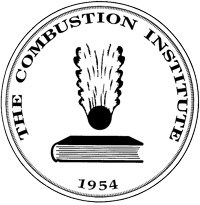Physics of Turbulent Combustion
122:026
Nordita, Stockholm
Venue

Nordita, Stockholm, Sweden
Scope
Turbulent combustion is not only a part of our daily life (e.g. in combustion engines that power road vehicles, airplanes, space vehicles and ships, as well as in power plants and numerous industrial sectors), but also it is the key process in supernovae explosions and thermo-nuclear fusion. Turbulence itself is a challenging research area and over the past few decades a significant development in experiments and high fidelity modeling has been made. Combustion is a multi-scale physico-chemical process involving reactions with a range of time scales and when coupled with turbulence they occur also in different spatial locations. Turbulent combustion is essentially dealing with the interaction between turbulent eddies and chemical reactions. Depending on the mixture composition, temperature, pressure and flow conditions rich combustion phenomena can occur: ignition, quenching, deflagration and detonation wave propagation, formation of pollutants, supernovae explosion, etc. This program will provide a meeting ground to communicate the current themes and recent progress in various aspects of turbulent combustion. This includes physical understanding of turbulence-chemistry interactions, theoretical analysis of the multi-scale physics in combustion, and translating this understanding and analysis into models and methods for simulation of turbulent combustion.Format
During the program a number of participants will come and go, but many of us stay for at least 3 weeks. At any given time there will be about 15-25 participants from the Program working at Nordita. Each participant will have a desk and share office space with other Program participants. In addition to informal discussions over coffee, we have typically 2-3 formal discussion sessions and 1-2 regular talks each week. A discussion session would be on a particular (often controversial) topic and 2-3 people would briefly explain their opinion and results on that, and then there will be a detailed discussion. We feel it is important not to occupy each day with activity, so there should be time for everybody to do their regular work, which might of course be work that is inspired by the formal or informal discussions and talks. This program will end with an International Combustion Institute's Summer School on the Physics of Turbulent Combustion, 26-30 September, 2016.
[Timetable - available from start of the program]
Application
If you want to apply for participation in the program, please fill in the application form. You will be informed by the organizers shortly after the application deadline whether your application has been approved. Due to space restrictions, the total number of participants is strictly limited. (Invited speakers are of course automatically approved, but need to register anyway.)
Application deadline: 6 June 2016
A minimum stay of one working week is required and we encourage participants to stay for a period of at least two weeks.
There is no registration fee.
Travel Reimbursement
For participants staying at least 3 weeks Nordita will cover both travel expenses and accommodation.
PhD students and young Postdoc fellows are eligible for travel grants to participate in the program. If you are interested in such a grant, please mark the corresponding field in the application form, briefly summarize your interest in the program in the comments field, and indicate an estimation of your expected travel expenses. Since only a limited number of grants is available, decision concerning the grants will be made on a case-by-case basis and you will be notified shortly after the application deadline.
Accommodation
Nordita provides a limited number of rooms in the Stockholm apartment hotel BizApartments free of charge for accepted participants.
Summer School on Physics of Turbulent Combustion
Course Description and Aims
The ICISS on the Physics of Turbulent Combustion is intended to report on the status and perspective of experimental, theoretical and numerical works in the field for the understanding of the physical processes and mathematical modeling of turbulent combustion. The summer school is aimed at providing an opportunity to present the state of the art, discuss new challenges and developments by world leading experts in the field, exchange ideas in the field of turbulent combustion and to foster the younger generation interested in this area by creating opportunities to interact with these experts closely.
Who should attend
The summer school will be made available to students worldwide, aiming at young scientists in different continents.
Summer school site, time, and the lecturers
The summer school will be held in the last week of the Nordita program from September 26 to 30, 2016, at KTH campus near Nordita. Courses will include approximately 30 hours of lecture, a field trip to an experimental facility, and social activities. The lecturers and content are as follows:
- Intrinsic flame instability in turbulent flames, by Prof. Moshe Matalon
- Structure and dynamics of turbulent flames, by Prof. Philip de Goey
- Flame/turbulence interaction in low temperature combustion, by Prof. Jackie Chen
- Flame/turbulence interaction in supersonic and detonation conditions, by Prof. Elaine Oran
- Mathematical modeling of turbulent combustion by Prof. Christer Fureby
Fees and registration
The summer school as well as accommodation, field trip, social events and meals will be free of charge. The costs for travelling are not covered by the summer school.
Application deadline: 30 July 2016
How to apply
- Before 6 June 2016 one can apply through this website and fill in the application form.
- After 6 June 2016 one can apply via email: xue-song.bai@energy.lth.se or geert@mech.kth.se.


